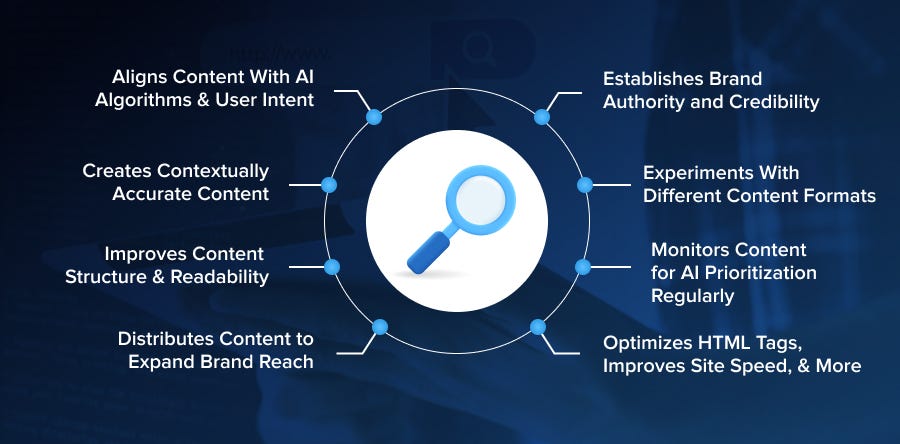Generative Engine Optimization (GEO)
The Future of SEO in the Age of AI Answer Engines
The way people search for information is evolving faster than ever. Traditional search engines like Google are no longer the only gateways to knowledge. With the rise of AI-powered engines such as ChatGPT, Gemini, and Bing Copilot, users are now receiving direct, conversational answers, skipping the need to click multiple websites.
This shift has given birth to a groundbreaking concept: Generative Engine Optimization (GEO). While SEO aims to rank your content on search results, GEO ensures your content is understood, trusted, and cited in AI-generated answers. This isn’t just a trend; it’s a survival strategy for brands, marketers, and content creators.

What is GEO?
Generative Engine Optimization is the art of making your content more accessible and appealing to AI-driven answer engines. Unlike SEO, which focuses on keyword density, backlinks, and technical site health, GEO focuses on:
- Providing concise, structured answers that AI can extract easily.
- Using credible references to build authority and trust.
- Writing in a conversational, human-like tone is aligned with how people ask questions.
- Ensuring content remains updated and relevant to increase AI preference.
Think of GEO as teaching AI to trust your voice. Instead of competing for a spot on Google’s first page, you’re positioning your content to become the answer itself.

How GEO Works
GEO is built on the principle that AI models consume, filter, and reframe information differently than search engines. While SEO rewards keyword strategy and backlinks, GEO rewards clarity, structure, and conversational quality. Here’s how you can optimize:
- Structured Content: AI prefers FAQs, bullet points, and step-by-step guides.
- Authority Sources: Cite studies, reputable articles, and government/educational sites.
- Conversational Queries: Frame your writing as answers to natural questions.
- Fresh Data: Outdated content is ignored; AI favors recently updated insights.
- Metadata & Schema: Clear HTML headings and schema markup help AI interpret your content correctly.
The key is to mirror how people interact with AI. If someone asks, “What is the future of SEO?”, your content should already have that question (and answer) clearly structured.

Why GEO Matters
In the past, getting a top Google ranking was the gold standard. But with AI-generated summaries, users often don’t click at all. This means even if you rank #1, your traffic might decline. GEO ensures:
- Visibility: Your content becomes the voice AI engines choose.
- Trust & Authority: Being cited by AI enhances your brand reputation.
- Indirect Traffic: Even if users don’t click, your brand name sticks in their mind.
- Competitive Advantage: Early adopters of GEO will dominate future AI-driven visibility.
In short, GEO isn’t just about traffic; it’s about owning the conversation.

The Future of GEO
As AI continues to evolve, GEO will not just complement SEO; it will redefine digital strategy. We are heading toward an AI-first search landscape where:
- Content visibility will be judged by AI citations, not just SERP rankings.
- Marketers will adopt AI visibility analytics alongside SEO tools.
- Brands that fail to adapt may lose digital presence altogether.
In the near future, your content strategy will not only ask “Am I ranking?” but also “Am I being quoted?” GEO is the bridge to that future.

Conclusion
Generative Engine Optimization (GEO) is no longer optional; it is the evolution of SEO in the age of AI. By focusing on structured answers, credible sources, and conversational tone, you can ensure your voice is chosen by AI engines.
Businesses and creators that embrace GEO today will be tomorrow’s digital leaders. Those who ignore it risk fading into the background of AI-driven conversations. The future of online visibility is not about ranking high; it’s about being the answer.

ohhhh fantastic wonderfullllll!!!!!!!!!!!
ReplyDelete